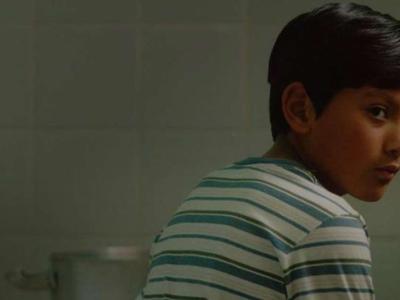‘It’s happening again. I can’t believe it’s happening again’. I was lying in my bed on an overcast late October morning checking my iPhone. Through the night phantasmagorical images had flooded my social media . Facebook, Twitter, WhatsApp, Instagram, Live leak., all chockablock with snapshots of stuff I thought we’d left buried in our painful collective past. Yet fast-forward from Chile 1973 to 2019 and there it was, right before me, in my Cambridge home. The rotten stench of political repression.
What had started off as a small act of rebellion by students jumping the turnstiles at one of Santiago’s main metro stations on October 18th 2019, soon spilled out into wider society, as more and more groups joined the protest. It wasn’t about the 30 peso hike anymore, it was about lack of access to education, abysmal pensions, starvation wages and inequality; This was about 30 years of being told that progress was happening but it wasn’t, Instead the political class of various political persuasions had continued to deepen Pinochet’s economic model and fill their pockets. MPs were taking home £10,000 per month while the average Chilean had to make do with £400. And as the crowds grew bigger and Piñera lost control, the unthinkable happened; the billionaire President took to national TV and declared that he was ‘At war with a dangerous enemy.’ That enemy happened to mean people like you and I.
On the eve of October 19th, Piñera rolled the tanks out onto the streets and imposed a curfew. Over the next 48 hours 15 people were killed. A mime was raped, tortured and hung on a park fence. A 17 year old boy was filled with bullets and then placed in a burning supermarket along with half a dozen others. Thousands of people were arrested. And the videos poured through the nether, terrorising all of us that had lived through it once before.
At first there wasn’t much in the media. I scoured the net over but found little, however the videos were relentless and reports on Chilean Indy Media began reaching beyond the silence of the media straitjacket. For days I wandered around town like a zombie feeling a total disconnection from the UK daily grind. How could people go about their lives as mine was imploding? Each morning I awoke with my stomach like a curled fist, Old traumas resurfaced.
A couple of days later I went to the Chilean Embassy in London, there were hundreds of people there, students, exiles, all united in rage and slight disbelief. We organised quickly. Chilean students here on PhD and MA programmes with experience of political organisation quickly set up groups in their universities, as the exile community began to regroup, then cabildos were formed to discuss the political solution out of the crisis, and the only remedy to right the wrongs of Chile’s extensive inequality; the removal of the Pinochet Constitution.

A few weeks later I found myself on a plane destined for Santiago. As soon as I landed I could smell revolution in the air. Someone had chucked leaflets onto the suitcase conveyor reading ‘Chile viola tortura y mata. Fuera Piñera Asesino! making reference to singer Mon Laferte’s political protest at the Grammys.
Within hours of arriving in Chile, I made my way to the Plaza Dignidad, formally known as Plaza Italia, that marks the boundary between the wealthy uptown barrios and the rest of Santiago. The shops had their shutters down and the stench of tear gas made black tears roll down my face. People were wearing bizarre makeshift armour and gas masks despite the suffocating heat. Alas I never made it to the Plaza. A baton wielding policewoman snarled at me to ‘get the hell away’ and then I spent the next four hours in central Santiago’ dodging rocks and occasionally throwing rocks, as the indignity of being repressed took over common sense. Although shocked at the turmoil that had gripped my home country, I was filled with hope and inspired by the determination of the Chilean people pushing for change. That night I made new friends around the barricades and lost my fear.
Five months into the crisis and just two months away from the critical new constitution ‘approve’ vote scheduled for April 26th, and things have not calmed down. Despite recommendations from 3 international human rights bodies: United Nations, Amnesty International and Human Rights Watch, the death toll continues to climb and the Institute of Human rights in Chile continues to document cases of sexual abuse and torture. Since last October 1,249 minors have been detained and the security forces have blinded over 460 people by shooting gas canisters directly into the victims faces.
Being abroad is hard when your people are literally fighting for survival, and being imprisoned, killed and mutilated, but it does allow us the opportunity to build international solidarity, influence public opinion and put pressure on corrupt governments. That is the task that many Chileans in the U.K. have opted to embrace.
Carole Concha Bell is a founding member of Chile Solidarity Network.
Find out more: Twitter: @chile_network
Facebook; Chile Solidarity Network
Instagram: @chilesolidaritynetwork















